Our exploring of Tianjin ends where it began, not just narratively but literally. Soon we will depart this frozen North to our warm Southern home. We are investing our last morning stocking baked treats to take home and enjoy over the next few weeks. Freezing and warming in the air fryer is a neat trick, doesn’t affect the quality, and even my diet can accommodate a bit of confectionary goodness. Give it a try!

At the start of this series, I described Tianjin as like going to your Grandma’s house. Maybe better to say it is like returning to where we grew up. Time and distance gloss up our memories, and returning confirms them, but also brings back things we prefer to forget. Nobody had an easy time growing up. We all have experiences that only become understandable later. Times were different, more likely now is better, and we can’t help comparing.
On the other hand, we also have a chance to unravel old mysteries and create new memories. Maybe Tianjin felt small when you were small, just a pinched maze of alleys, courtyards, and busybodies, or was only a factory full of grinding gears, saws, and schedule griping at the end of a day’s flying and driving. But we are grown now, trialled and tested, and Tianjin can be bigger and better too. There is more here waiting to be seen, old history and new adventures.
As we walk to breakfast, I’m can’t help but think about this massive old city and that supplier of oak chairs. Being in Tianjin inspires thoughts about Fairwood, how grateful I am for those memories, and more grateful I won’t ever need to return. Allow me a digression, to commit this to paper.
We worked with dozens of suppliers, mostly in Guangdong, but also Jilin, around Qingdao and Shanghai, though Fairwood in Tianjin was the only supplier of its kind. Fairwood was a “small” oak chair maker. I say small, though we were buying ten to twenty containers a month of chair components for US assembly. Each container was packed with up to 20,000 chairs. The two owners were an unforgettable pair. Zhaokai, looking like a fat buddha in appearance and demeanour. He was the majority partner and handled the finance. Pangxin handled the daily factory work.
Zhaokai’s office was full of antiques, which he loved collecting. I still have small pieces he gifted me over the years and do not doubt the authenticity for a second. They ran that business tight, growing and changing with us, for close to twenty years. But like many small businesses, though confident within their community, they were at the mercy of international players like us, and never really grasped the trade-offs. Fairwood disappeared sometime after 2010. We have all moved on to other things.
Ah, here we are. The locals know which lines to join and at what time to get the best and freshest selection. We find our line, ignoring the cold, watching and listening as each customer shuffles up to the window, shouting what they want and how many. The shouting goes back and forth a few times. What’s that, was it baked today, the ingredients, maybe a joke or two, a familiar kind of banter delivered in the local dialect. Ultimately, monies are exchanged. Yes, cash still makes an appearance, and those behind don’t even grunt and roll their eyes in disgust at the delay. A thin plastic bag of breads and meats is shoved through the window and we step up to our turn.
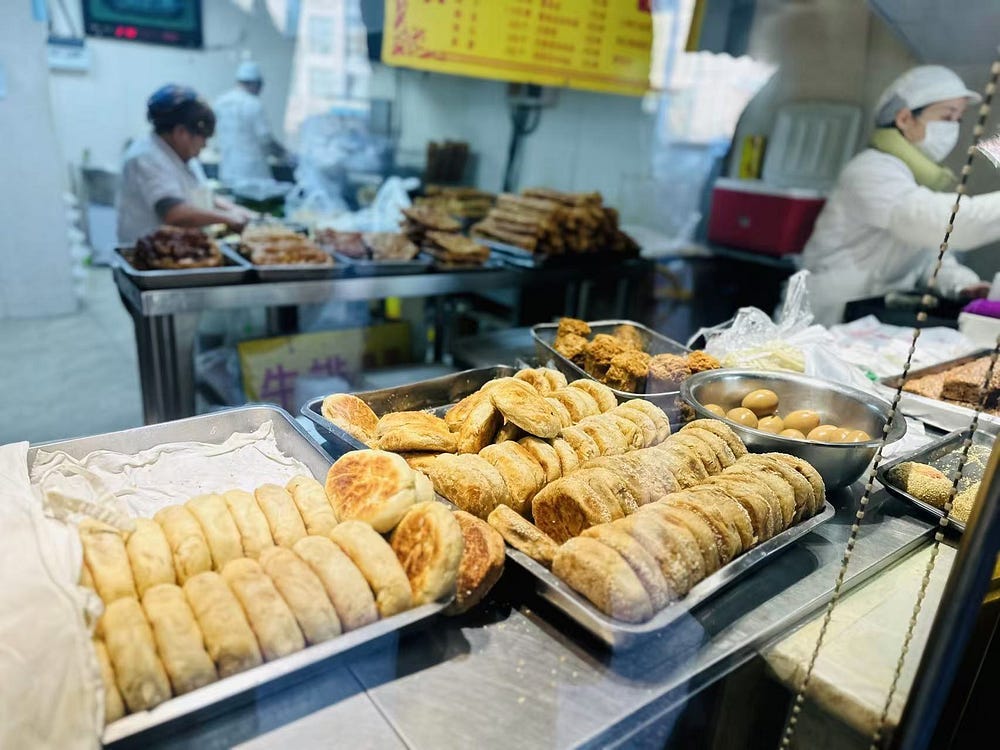
At some of the places, you can eat inside, but whether takeaway or eating in, be on time because stocks are limited. We are early and rattle off what we want concisely. Solid operational planning is rewarded in XiBei Jiao. We’re going inside, with our bag of bread and the ticket to give the nice ladies in the kitchen. This morning we’re having Guo Ba Cai (锅巴菜).

Guoba Cai (锅巴菜) is an authentically traditional Tianjin breakfast food that I am pretty confident I’ve never encountered anywhere else. Unlike Jianbing Guozi (煎饼果子), which seems to be everywhere in varying quality, the keen fans of Guoba Cai have to come here to get the real stuff.
The décor could be mistaken for fast food, but shame on us, these lunch ladies are specialists in their field, and their clientele, to the last of them, is qualified to appraise their skills. How can I convey the atmosphere? There are no tourists, except perhaps myself. You just know everyone grew up nearby, went to school and work not far, and has eaten their “Gaba Cai” — that’s what it sounds like when spoken — hundreds of times. We hand over the ticket and in less than a minute, the ingredients are tossed, kind of thrown by spoon, into a bowl in a confidently nonchalant way that only years of practice and thousands of reps can bestow.
I’m told the Gaba “noodles” origin story is flubbed jianbing pancakes that instead of being discarded, found a use cut into strips. Come to think of it though, I have never ever seen a jianbing maker screw up their pancake, so maybe that’s just a nice legend. The thick soup is made of, among other ingredients, cinnamon, star anise, soy sauce, and cilantro, flavoured with sesame sauce, peanut sauce, and of course you add spicy oil. The taste is a complex combination of salty with a bit of sweetness. The peanut sauce is what makes this dish work for me. Our boys love it so much they could eat it every morning.
Time for a final turn past the dried fruit stand. They have a dried pineapple and some prunes I really like. To tell the truth, I most like the sights and smells, the mix of colours and textures. There are some just diabolically delicious things here, totally wrong for my diet, but I don’t seem to care while I’m here. The time for counting calories and calculating macros is tomorrow.
I can’t express how good it feels to see XiBei Jiao and these neighbourhoods doing well. Sure, twenty years ago the atmosphere was pure, more authentic, whatever that means, but it was also rougher, and meaner. Making a living was even harder and more precarious. I’ve heard some stories, by no means all and by no means the worst, but we should not want to go back. Two young guys rush past us, each carrying two full bags of XiBei specialities, their accents unmistakably Beijing. They are returning to home and work in the capital after a slower paced weekend and good food here.
So I don’t mind the modern makeover. It is between this, a modern makeover, or oblivion, and I’ll take preserving the essence of this community over wiping the slate clean. When I see generations mingling together, and visitors coming from near and far, happily sharing this existence, I see the best of Tianjin.
I’ve wanted to share Tianjin since the beginning of Travelogues, but the opportunity to visit wasn’t coming up. Sometimes, the place where you grew up or spent so much time gets stale, becomes routine, and feels less special. We stop seeing with a fresh mind. Our family has made the return to Tianjin, no longer just a hometown, but a proud and deep reservoir of culture and future experiences. Since this trip in December 2024, we have already returned twice, and I predict we will for a third time in 2025. This is just the beginning of The Tianjin Travelogues.
More and more, we are going places because we want to know more about a specific person or subject. We came to Tianjin because Master HongYi grew up here, and we will follow Clay Figurine Zhang for many years to come. There is purpose rising from this fractal approach to subject and destination. It all started with The Daodejing and the Question of Why. I hope you will stay to find out what answers wait for us.




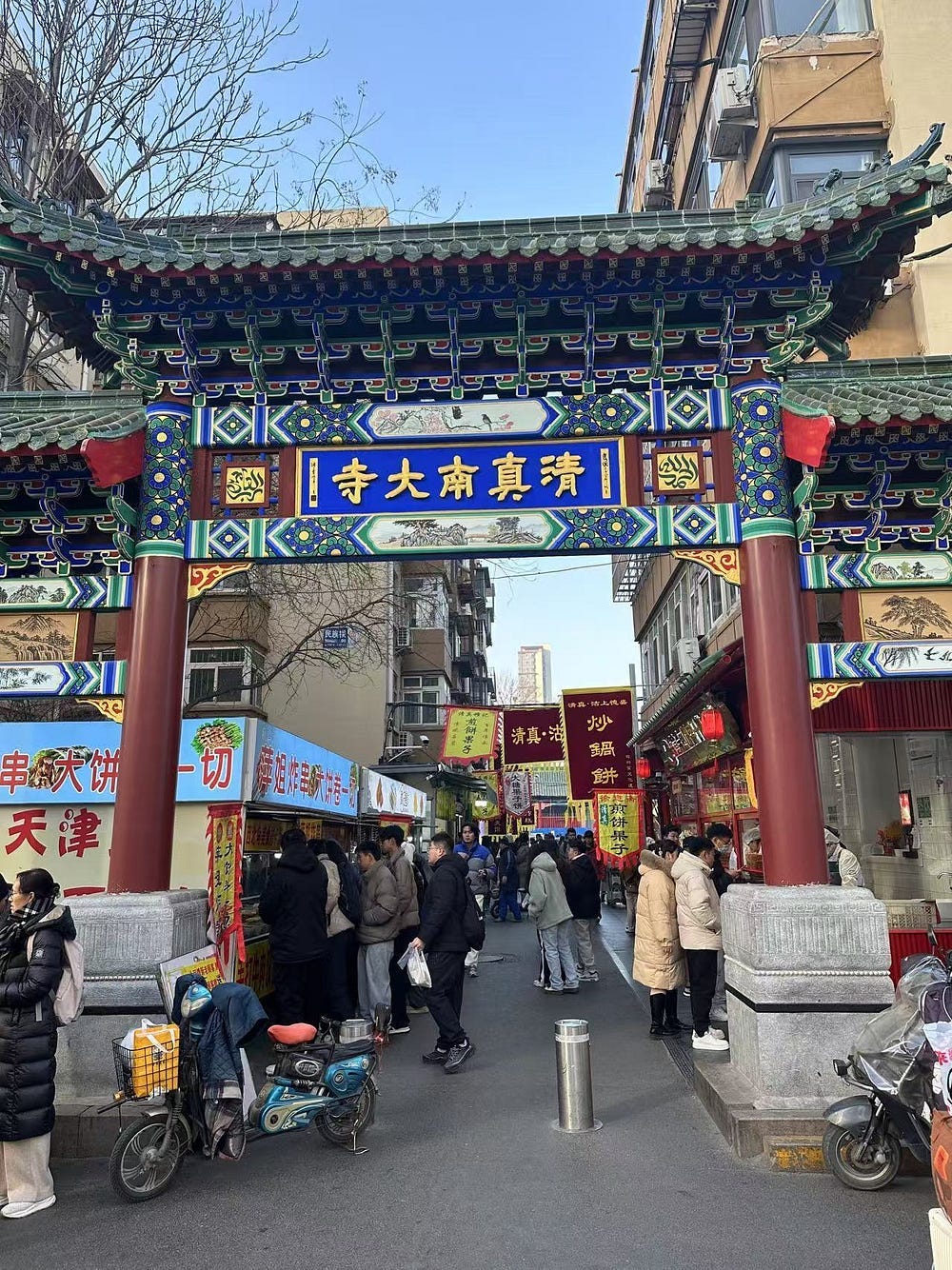


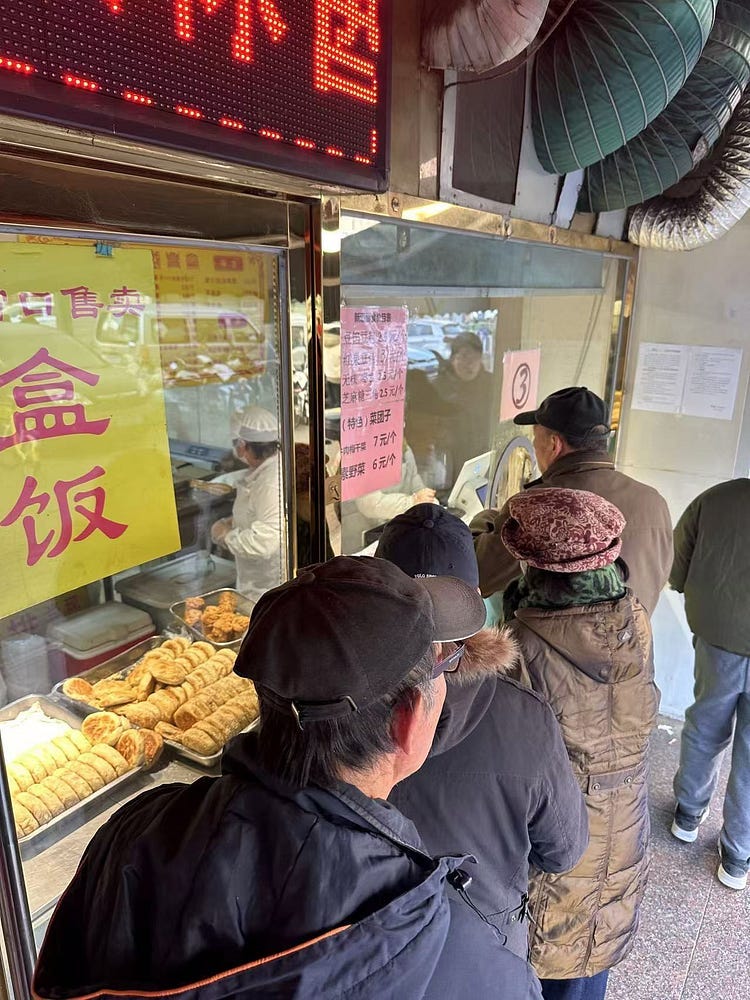
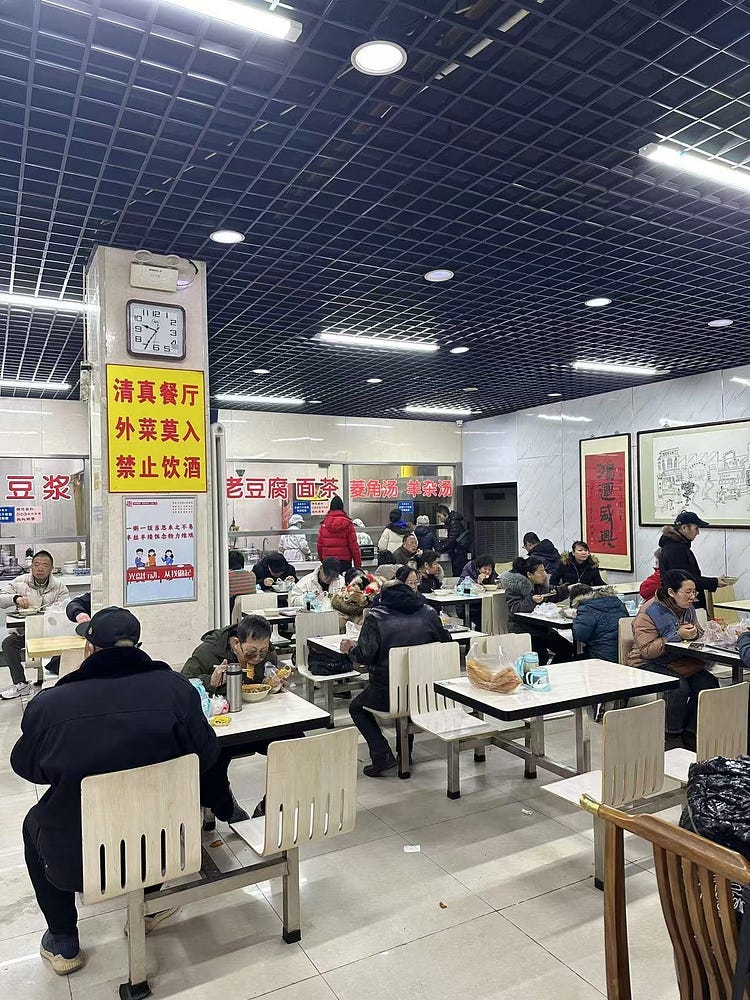

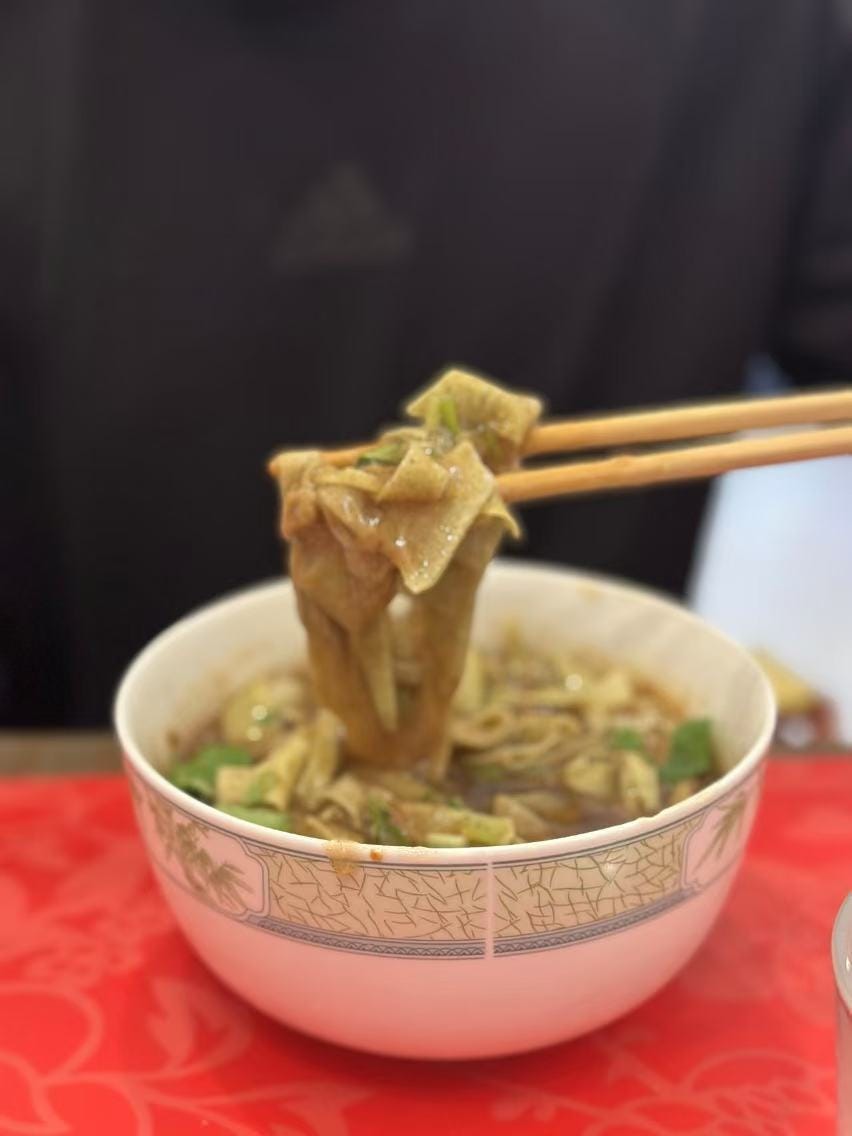
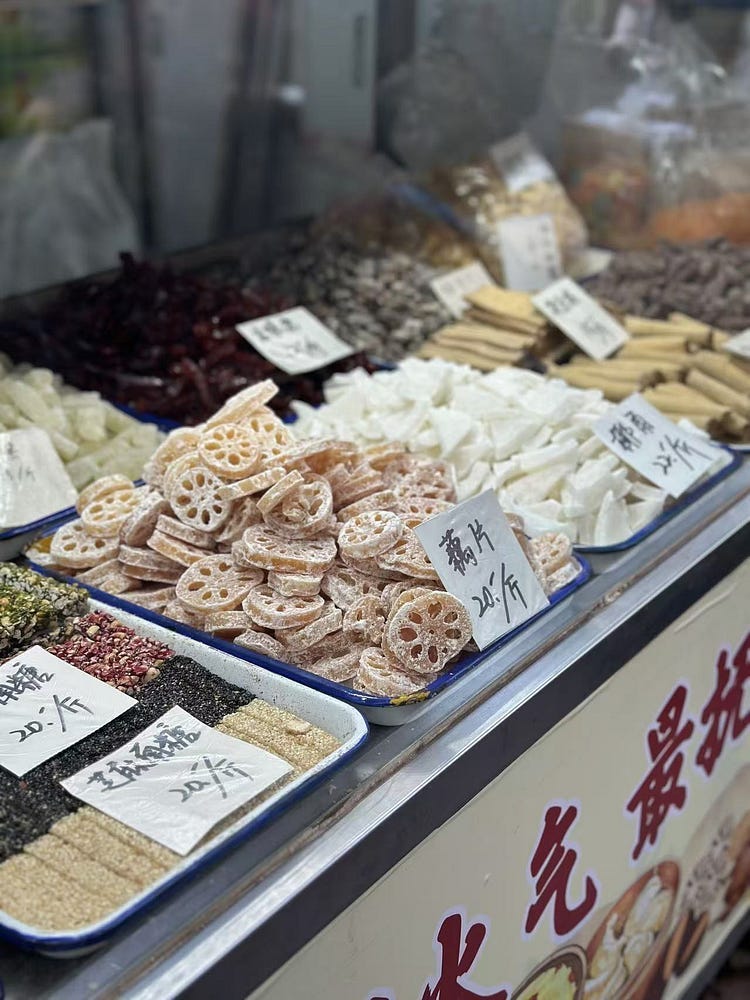
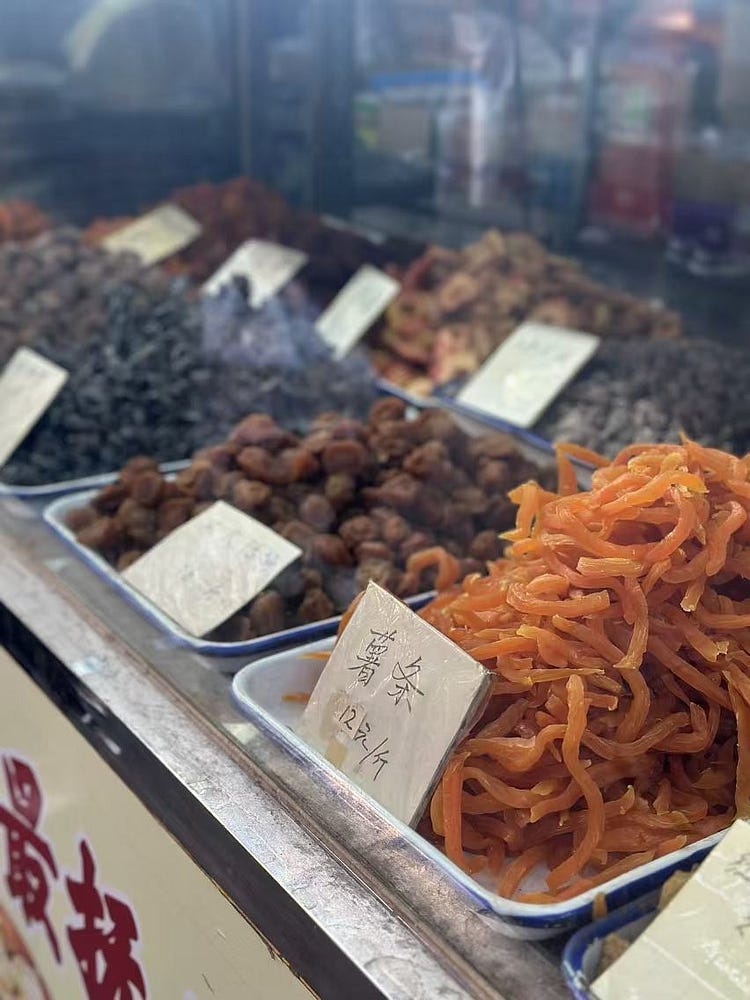

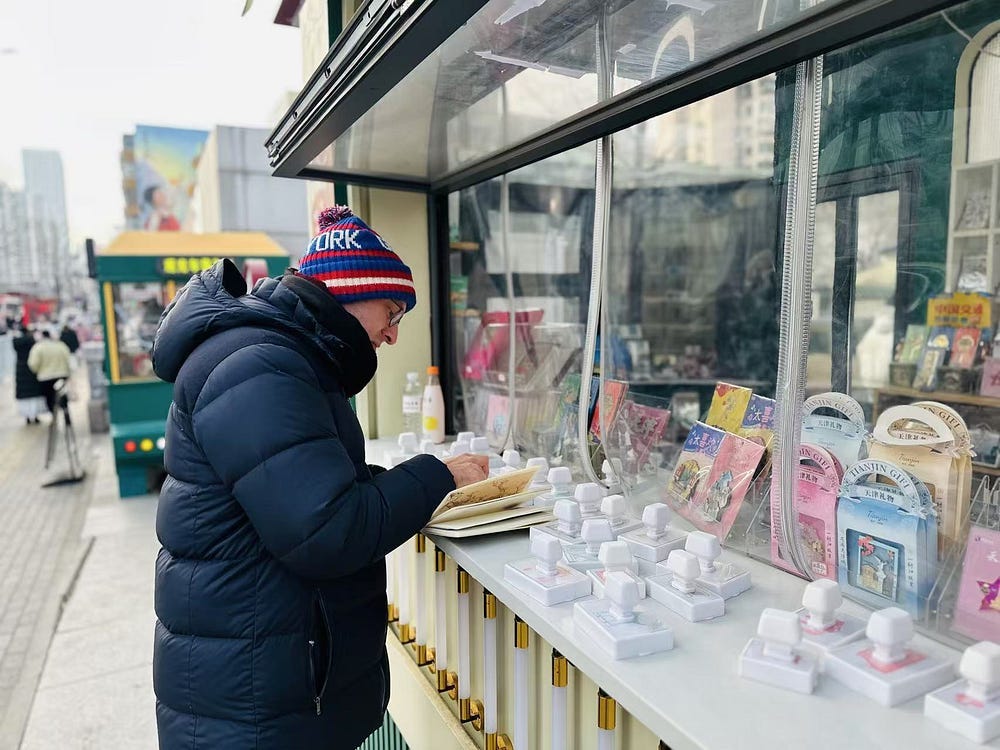
Thank you for the tour of Tianjin . Looks like a city with rich culture and memories. Looking forwarded to see more fun to come and see what Why will you find 🤓
"Time and distance gloss up our memories, and returning confirms them, but also brings back things we prefer to forget. " Well said, Paul.
Homecoming or revisiting a familiar place always brings out complex nostalgia. Especially if the place is a rapidly changing society caught in the cultural and geopolitical conflicts. Maybe I'm reading too much into this. However, I'm glad you're no longer in the furniture-importing business.